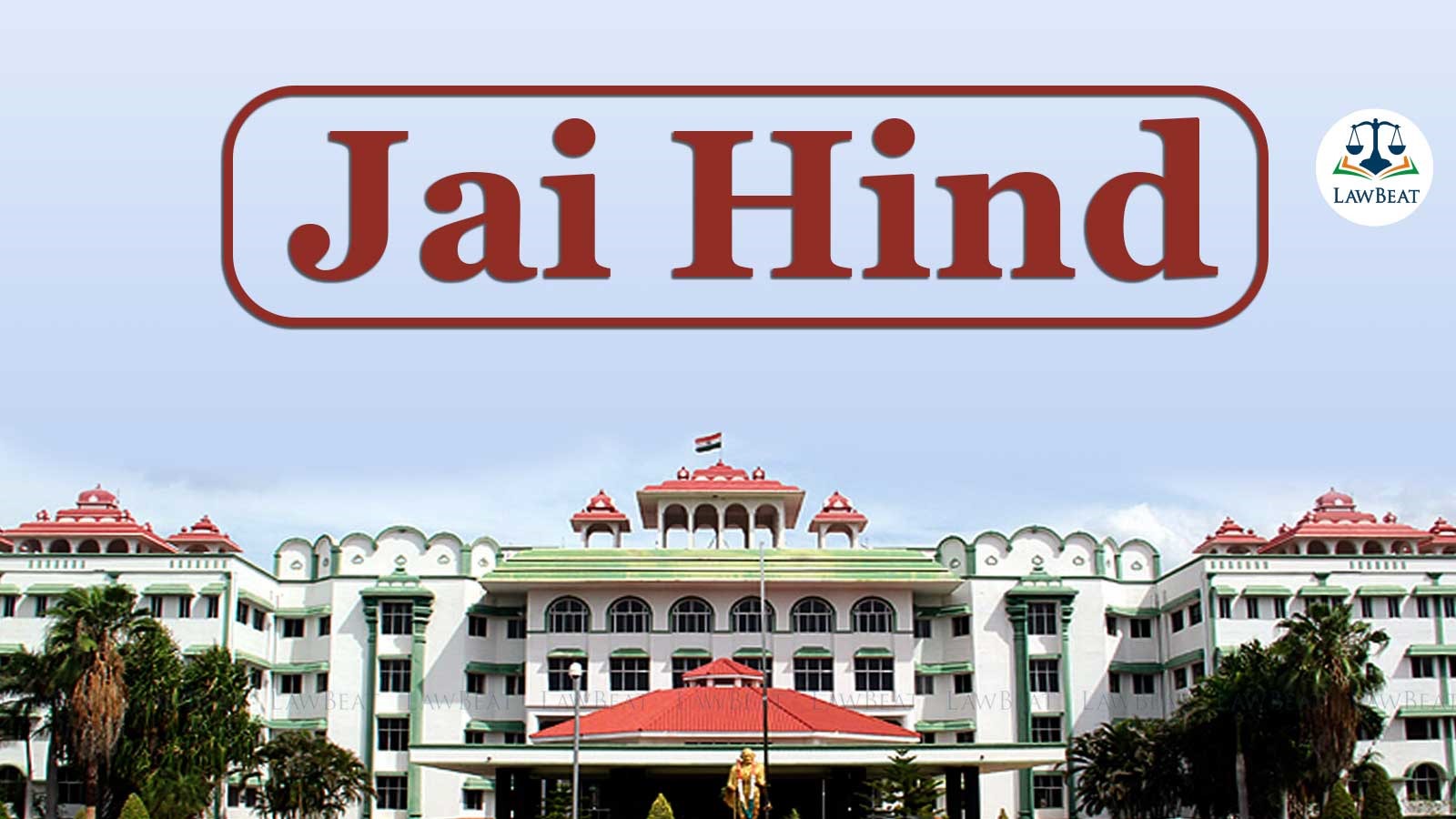Writing 'Jai Hind' at end of essay doesn't necessarily hint towards malpractice in exam: Madras HC

The instructions to the candidates of the combined civil services stated that they shall not write irrelevant or impertinent remarks
While granting relief to a civil services candidate whose answer sheet was invalidated for concluding an essay with "Jai Hind," Justice Battu Devanand of the Madras High Court held that the use of the slogan by the candidate appeared natural, spontaneous and effective culmination of the essay rather than any tacit signal of attempting any malpractice.
He opined, "While writing an essay on 'Importance and conservation of the natural resources' some young scholar or educated youth would naturally become emotional and while discussing the ways and means of protecting nature and conserving natural resources in the interest of society at large, may spontaneously feel patriotic. In such a moment of reflection and soul searching, for some youth, it's a natural way of expression to end an essay or a speech with some patriotic slogan summarizing the essence of the topic such as 'Jai Hind'."
Court further emphasized that "Jai hind" or "victory to India" is the most commonly uttered slogan in India, whether it is at the end of the school prayers by children or at the end of a speech by eminent persons.
"It is the last word to be seen in several communications wherever the patriotic fervour is invoked towards the motherland i.e., India or Bharat," the judge highlighted.
Court was dealing with a plea moved by one Kalpana seeking to overturn the invalidation of her answer sheet and to be considered for appointment to positions within the Combined Civil Services Examination-II Group II Services.
Kalpana explained that she discovered her answer paper in Part-B of the examination was invalidated because she had allegedly included irrelevant content.
The standing counsel for the Tamil Nadu Public Service Commission argued that Kalpana had violated examination instructions by adding "Jai Hind - Let us live united with nature" at the end of the essay, which was considered irrelevant to the question.
Coming to the defense of a candidate whose answer sheet was invalidated for concluding an essay with "Jai Hind," the Madras High Court recently stated that the inclusion of this patriotic phrase did not render the essay invalid. According to Justice Battu Devanand of the Madurai bench, "Jai Hind," meaning victory to India, is a commonly used slogan during patriotic expressions for the motherland. The court emphasized that, given the essay's focus on the importance and conservation of natural resources, incorporating "Jai Hind" was not only relevant but also an appropriate way to summarize the essence of the topic.
Justice Battu Devanand observed that individuals with a sense of patriotism are likely to protect natural resources for the benefit of future generations, as these resources are intricately connected to nature. The court argued that living in harmony with nature is a fundamental aspect of our existence. Therefore, when crafting an essay on the significance and preservation of natural resources, the petitioner's concluding statement, "Jai Hind-Let us live united with nature," was deemed highly relevant and fitting for the question. The court dismissed any notion that this inclusion could be perceived as an impertinent remark or an attempt to reveal the petitioner's identity to the examiner.
The petitioner, Kalpana, had approached the court seeking to overturn the invalidation of her answer sheet and to be considered for appointment to positions within the Combined Civil Services Examination-II Group II Services. Kalpana explained that she discovered her answer paper in Part-B of the examination was invalidated because she had allegedly included irrelevant content.
The standing counsel for the Tamil Nadu Public Service Commission argued that Kalpana had violated examination instructions by adding "Jai Hind - Let us live united with nature" at the end of the essay, which was considered irrelevant to the question.
He referred to Part 16 (iii) of the Instructions to Candidates, wherein it was instructed that candidates should not write irrelevant or impertinent remarks and submitted that since the petitioner had violated the instruction, her answer sheet had been invalidated.
Regarding the argument, the judge observed, "The ordinary meaning for the word 'impertinent' means not pertinent to a particular matter. While the respondent invalidating the answer paper of the petitioner on the ground that the petitioner made some impertinent remarks at the end of the essay, it ought to have considered the entire essay written by the petitioner".
He added that only a qualified examiner could determine whether the phrase "Jai Hind - Let us live united with nature" could be seen as a suitable conclusion for an essay on the conservation of nature.
The respondent could not take a decision invalidating the answer paper of the petitioner coming to a conclusion that the said words written by the petitioner at the conclusion of the essay were impertinent, Justice Devanand held.
Consequently, the court instructed the TNPSC to validate Kalpana's answer papers, award marks accordingly, and if she met the required score, appoint her to the relevant post within the Combined Civil Services Examination-II Group-II Services within four weeks from the date of receiving the court order.
Case Title: M.Kalpana v The Secretary
